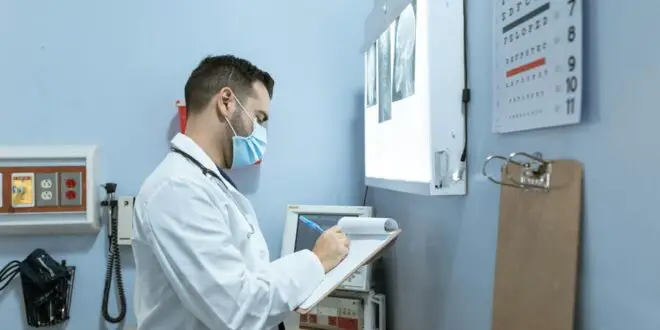Embarking on the journey to secure an optimal physician role is a pivotal decision transcending mere career advancement. Within the dynamic healthcare landscape, this endeavor requires showcasing clinical competencies while aligning personal passions, objectives, and aspirations with a tailored professional opportunity.
Self-Discovery and Goal Setting: Illuminating Professional Identity
The journey to find the right job as a doctor begins with understanding oneself beyond clinical prowess. Aligning one’s skill set with inherent passions involves reflection on strengths, interests, and long-term career objectives. Deliberations on preferred medical specialties and practice settings help establish clear goals, illuminating the trajectory of one’s career path.
This phase involves exploring motivations that drive one as a physician, unraveling the satisfaction derived from patient interactions. This self-awareness guides not only job searches but also shapes a career trajectory in harmony with professional aspirations.
Navigating Online Job Platforms: Leveraging Digital Tools for Career Advancement
In the technology era, online job boards such as Doximity, PracticeLink, and specialized platforms are gateways offering access to job listings and enhancing professional visibility. Maintaining a dynamic online presence involves updating profiles with clinical accomplishments, education pursuits, leadership roles, and contributions to the medical community.
Beyond job listings, these platforms provide an opportunity to present a comprehensive professional identity. Physicians can showcase not only their clinical expertise but also their commitment to ongoing education, leadership roles, and active contributions to the medical community. Think of these platforms as more than just job boards; they are digital canvases introducing physicians to potential employers and recruiters in the best possible light.
Building Authentic Connections: Networking as a Pillar of Professional Advancement
Networking is a personalized odyssey with the potential to impact a medical career profoundly. Participation in conferences, seminars, and local events offers valuable opportunities to connect with peers, administrators, and recruiters, leading to unadvertised opportunities.
In the digital realm, platforms like LinkedIn play a pivotal role as invaluable networking tools. Moving beyond the mere accumulation of connections, meaningful engagement through insightful conversations and participation in relevant professional groups transforms a network from a mere collection of contacts into a robust community, offering support, guidance, and unforeseen career prospects.
Authentic connections often lead to opportunities that go beyond the scope of traditional job searches.
Nurturing Relationships with Recruiters: Strategic Alliances for Career Progression
Cultivating connections with recruiters becomes instrumental in the physician’s job search. Recruiters offer insights into unadvertised positions and guidance on optimizing resumes and preparing for interviews.
Approaching these professional relationships as strategic partnerships involves regular communication, ensuring recruiters comprehend the nuanced evolution of career goals. Share your professional journey, aspirations, and any changes in your career objectives. Recruiters can serve as valuable allies when they have a comprehensive understanding of your skills, preferences, and career trajectory.
Exploring Diverse Career Paths: Beyond Conventional Trajectories
Consideration of unconventional medical career paths becomes a strategic imperative. Academic institutions, healthcare systems, and locum tenens positions present unique experiences beyond routine paths.
Consider temporary assignments and locum tenens work as opportunities to explore different locations, patient demographics, and healthcare systems. These experiences not only add diversity to your professional profile but also provide valuable insights that contribute to your growth as a physician.
Immersing in Professional Associations: Integration into the Collective
Professional associations become vibrant communities enriching the professional lives of physicians. Active involvement in association activities positions physicians as proactive contributors to their professional community.
Joining committees, participating in leadership roles, and contributing to the association’s initiatives go beyond resume enhancement. They establish you as a proactive and engaged member of the medical community. Professional associations also provide platforms for continued education, networking events, and opportunities to showcase your expertise. Consider these activities as investments in your professional development and a means to contribute to the collective growth of your field.
Crafting Authentic Application Materials: Resumes and Cover Letters as Strategic Narratives
Resumes and cover letters evolve into strategic narratives that spotlight clinical skills and emphasize leadership, collaboration, and communication abilities. Crafting these documents requires more than a generic approach; it demands a tailored reflection of your unique professional journey.
Your resume should not be a laundry list of clinical experiences but a curated representation of your skills, achievements, and contributions. Use quantifiable metrics to highlight your impact wherever possible. Your cover letter, on the other hand, should be a compelling narrative that goes beyond a mere recitation of your resume. Share anecdotes that illustrate your passion for medicine, your approach to patient care, and your adaptability to different healthcare environments.
Excelling in Interviews: Articulating Professional Essence
The preparation for interviews transcends rote memorization of answers; it centers on the authentic presentation of self. Beyond the diligent research of the hiring institution, a deep dive into motivations, values, and contributions to team-based healthcare becomes imperative. The articulation of clinical expertise, patient care philosophy, and adaptability to evolving healthcare trends should be conveyed with precision.
Interviews are not mere evaluations; they represent nuanced conversations where the mutual fit between the physician and the institution is discerned. Conduct mock interviews to refine your communication skills and boost your confidence. Your ability to convey not only clinical competence but also interpersonal skills and cultural alignment within the organization significantly influences the interview outcome.
Negotiating Collaboratively: Crafting a Mutually Beneficial Alliance
Negotiating employment contracts becomes a strategic endeavor in crafting a mutually beneficial collaboration. Seeking legal advice when necessary, and clear communication regarding needs and priorities is imperative. The negotiation process should not only encompass salary considerations. It should also include comprehensive discussions on benefits, work hours, professional development opportunities, and the elusive work-life balance.
Negotiation ceases to be a singular event; it transforms into an ongoing dialogue shaping the foundational terms of a successful and fulfilling collaboration. The approach underscores transparency and positions negotiation as an opportunity to express commitment to a balanced work-life equation and professional growth. Collaborative negotiation establishes the bedrock for a sustainable and gratifying career with the prospective employer.
Embarking on the journey to find the right physician role is a holistic endeavor requiring self-awareness, adaptability, and meticulous strategic planning. Leveraging online resources, cultivating meaningful connections, and exploring diverse opportunities serve as a blueprint for aligning personal and professional goals.
 Being Human
Being Human





